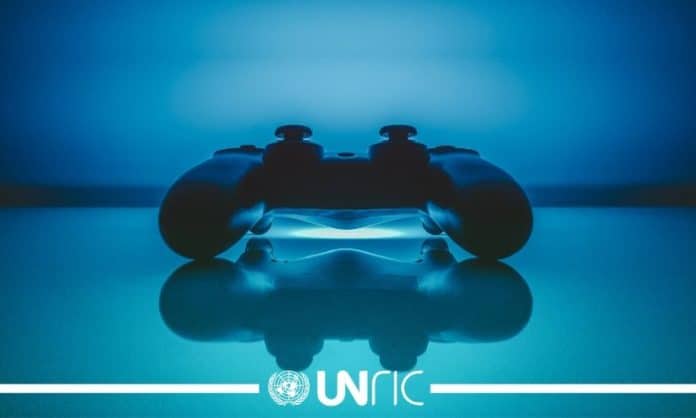The video games industry, which reaches over 2.5 billion people globally, is taking a lead role in promoting healthy physical distancing, hand hygiene, and other preventive habits to curb the spread of the coronavirus disease.
In Sweden, video games developer Mojang, the company behind the global hit Minecraft, has teamed up with the United Nations Development Programme (UNDP) to urge people to follow the World Health Organisation’s global messaging to help stop the spread of coronavirus.
Using the hashtag #TomorrowTogether and Minecraft’s infamous Creepers on their social media pages, the campaign promotes the use of hand-washing and cleaning of electronic devices.
Microsoft is allowing Xbox players the option to donate their Microsoft Rewards points to the United Nations Foundation (UNF), GlobalGiving and CDC Foundation to assist in their coronavirus response efforts.
Bethesda studios, the team behind Fallout, Quake, and Elder Scrolls, are donating $1 million to COVID-19 funds, of which $250,000 will go to UNICEF relief efforts.
Finally, Sony Corp announced a $10 million Global Relief Fund, devoted to the WHO’s COVID-19 Solidarity Response Fund to assist medical workers and others on the frontline of response efforts to the virus.

Virtual worlds, real audiences
Beyond active playing, video games are also an enormous spectator sport. In 2019, there were 201.2 million esports enthusiasts watching games on platforms such as Twitch, Mixer and YouTube, along with 252.6 million occasional viewers. In the ‘attention economy’, the influence of games is without match.
On Saturday 25 April 2020, AC Milan goalkeeper Asmir Begović and FC Bayern Munich’s teenage sensation Alphonso Davies went head to head in an eFootball PES2020 livestream tournament. The pair, both former refugees, played to raise funds for the UN Refugee Agency’s (UNHCR) COVID-19 response.
The tournament helped raise just under €9,000 with Bosnian, Asmir Begović, the overall winner. All funds raised from the event will help people forced to flee their homes prevent the spread of coronavirus in their communities. UNHCR is delivering health, water, sanitation and hygiene services to protect refugees and displaced people from the spread of coronavirus.
The United Nations and Video Games
The video game industries’ involvement with the United Nations predates COVID-19. In 2018, CEO’s of leading gaming companies committed to harness the power of their platforms to take action in response to the climate crisis under the banner of the Playing for the Planet Alliance. The initiative was facilitated by the UN Environment Programme (UNEP) with the support of Norwegian foundation GRID-Arendal and Playmob.
Another initiative, Games for Learning, set-up by UNESCO MGIEP, based in New Delhi, India, is exploring the role video games can play in meeting the UN’s Sustainable Development Goals (SDGs). Games for Learning aims to raise issues of peace, sustainable development and global citizenship in the minds of the learner (13+) through digital games in formal and informal education systems.
The gaming industry is projected to see double-digit annual percentage gains over the next years. Given the scale of the challenges presented by the COVID-19 pandemic and to achieve the Sustainable Development Goals (SDGs), harnessing even a small portion of this activity – in terms of funds, time and problem-solving skills – can create tremendous impact in the real world.
Additional links:



